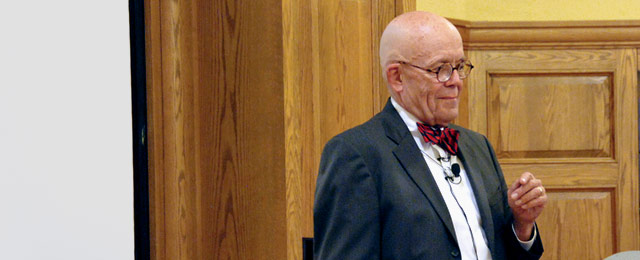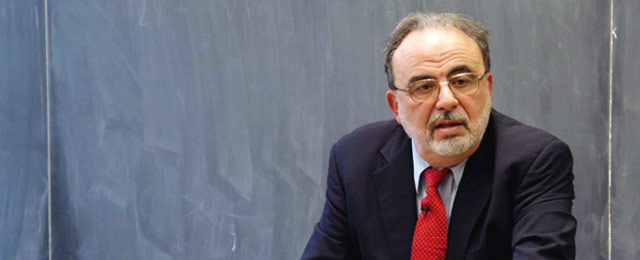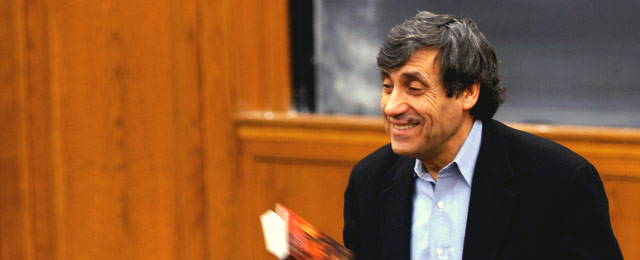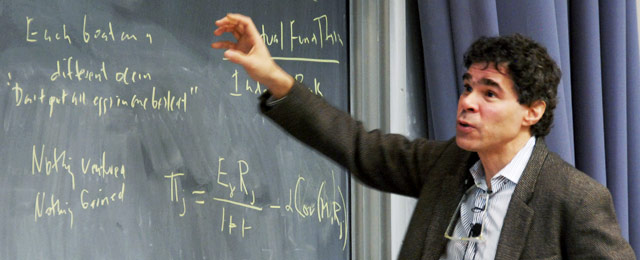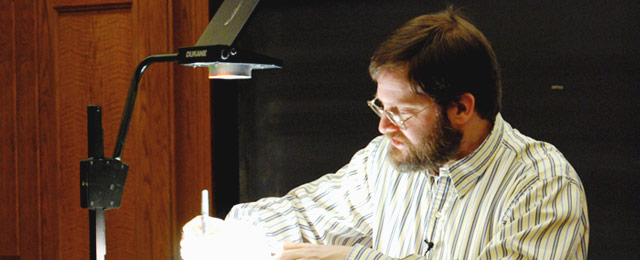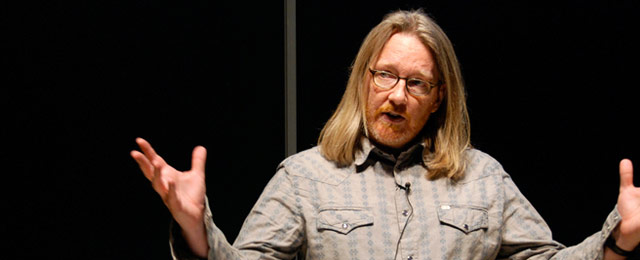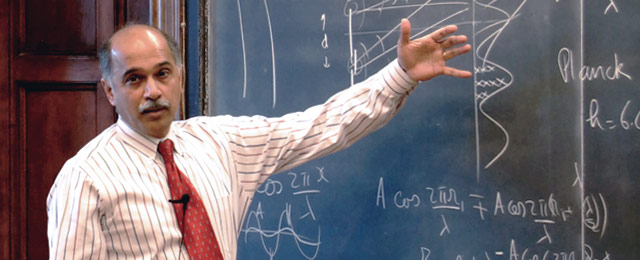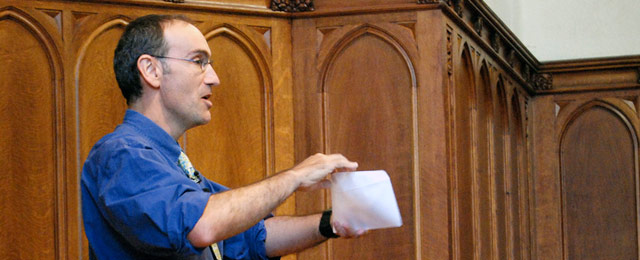Online courses directory (41)
The purpose of this course is to examine the African American experience in the United States from 1863 to the present. Prominent themes include the end of the Civil War and the beginning of Reconstruction; African Americans’ urbanization experiences; the development of the modern civil rights movement and its aftermath; and the thought and leadership of Booker T. Washington, Ida B. Wells-Barnett, W.E.B. Du Bois, Marcus Garvey, Martin Luther King Jr., and Malcolm X.
Warning: Some of the lectures in this course contain graphic content and/or adult language that some users may find disturbing.
In this course, we will seek to interpret capitalism using ideas from biological evolution: firms pursuing varied strategies and facing extinction when those strategies fail are analogous to organisms struggling for survival in nature. For this reason, it is less concerned with ultimate judgment of capitalism than with the ways it can be shaped to fit our more specific objectives--for the natural environment, public health, alleviation of poverty, and development of human potential in every child. Each book we read will be explicitly or implicitly an argument about good and bad consequences of capitalism.
The course facilitates a close reading of Don Quixote in the artistic and historical context of renaissance and baroque Spain. Students are also expected to read four of Cervantes' Exemplary Stories, Cervantes' Don Quixote: A Casebook, and J.H. Elliott's Imperial Spain. Cervantes' work will be discussed in relation to paintings by Velázquez. The question of why Don Quixote is read today will be addressed throughout the course. Students are expected to know the book, the background readings and the materials covered in the lectures and class discussions.
The course is an introduction to Dante and his cultural milieu through a critical reading of the Divine Comedy and selected minor works (Vita nuova, Convivio, De vulgari eloquentia, Epistle to Cangrande). An analysis of Dante's autobiography, the Vita nuova, establishes the poetic and political circumstances of the Comedy's composition. Readings of Inferno, Purgatory and Paradise seek to situate Dante's work within the intellectual and social context of the late Middle Ages, with special attention paid to political, philosophical and theological concerns. Topics in the Divine Comedy explored over the course of the semester include the relationship between ethics and aesthetics; love and knowledge; and exile and history.
There is one thing I can be sure of: I am going to die. But what am I to make of that fact? This course will examine a number of issues that arise once we begin to reflect on our mortality. The possibility that death may not actually be the end is considered. Are we, in some sense, immortal? Would immortality be desirable? Also a clearer notion of what it is to die is examined. What does it mean to say that a person has died? What kind of fact is that? And, finally, different attitudes to death are evaluated. Is death an evil? How? Why? Is suicide morally permissible? Is it rational? How should the knowledge that I am going to die affect the way I live my life?
This course is intended to provide an up-to-date introduction to the development of English society between the late fifteenth and the early eighteenth centuries. Particular issues addressed in the lectures will include: the changing social structure; households; local communities; gender roles; economic development; urbanization; religious change from the Reformation to the Act of Toleration; the Tudor and Stuart monarchies; rebellion, popular protest and civil war; witchcraft; education, literacy and print culture; crime and the law; poverty and social welfare; the changing structures and dynamics of political participation and the emergence of parliamentary government.
Can law change human behavior to be less environmentally damaging? Law will be examined through case histories including: environmental effects of national security, pesticides, air pollution, consumer products, plastics, parks and protected area management, land use, urban growth and sprawl, public/private transit, drinking water standards, food safety, and hazardous site restoration. In each case we will review the structure of law and evaluate its strengths and weaknesses.
This course consists of an international analysis of the impact of epidemic diseases on western society and culture from the bubonic plague to HIV/AIDS and the recent experience of SARS and swine flu. Leading themes include: infectious disease and its impact on society; the development of public health measures; the role of medical ethics; the genre of plague literature; the social reactions of mass hysteria and violence; the rise of the germ theory of disease; the development of tropical medicine; a comparison of the social, cultural, and historical impact of major infectious diseases; and the issue of emerging and re-emerging diseases.
This course offers a broad survey of modern European history, from the end of the Thirty Years' War to the aftermath of World War II. Along with the consideration of major events and figures such as the French Revolution and Napoleon, attention will be paid to the experience of ordinary people in times of upheaval and transition. The period will thus be viewed neither in terms of historical inevitability nor as a procession of great men, but rather through the lens of the complex interrelations between demographic change, political revolution, and cultural development. Textbook accounts will be accompanied by the study of exemplary works of art, literature, and cinema.
Financial institutions are a pillar of civilized society, supporting people in their productive ventures and managing the economic risks they take on. The workings of these institutions are important to comprehend if we are to predict their actions today and their evolution in the coming information age. The course strives to offer understanding of the theory of finance and its relation to the history, strengths and imperfections of such institutions as banking, insurance, securities, futures, and other derivatives markets, and the future of these institutions over the next century.
This course attempts to explain the role and the importance of the financial system in the global economy. Rather than separating off the financial world from the rest of the economy, financial equilibrium is studied as an extension of economic equilibrium. The course also gives a picture of the kind of thinking and analysis done by hedge funds.
This course provides an overview of major works of social thought from the beginning of the modern era through the 1920s. Attention is paid to social and intellectual contexts, conceptual frameworks and methods, and contributions to contemporary social analysis. Writers include Hobbes, Locke, Rousseau, Montesquieu, Adam Smith, Marx, Weber, and Durkheim.
This course covers the emergence of modern France. Topics include the social, economic, and political transformation of France; the impact of France's revolutionary heritage, of industrialization, and of the dislocation wrought by two world wars; and the political response of the Left and the Right to changing French society.
This is the first semester in a two-semester introductory course focused on current theories of structure and mechanism in organic chemistry, their historical development, and their basis in experimental observation. The course is open to freshmen with excellent preparation in chemistry and physics, and it aims to develop both taste for original science and intellectual skills necessary for creative research.
This is a continuation of Freshman Organic Chemistry I (CHEM 125a), the introductory course on current theories of structure and mechanism in organic chemistry for students with excellent preparation in chemistry and physics. This semester treats simple and complex reaction mechanisms, spectroscopy, organic synthesis, and some molecules of nature.
This course focuses on three particularly interesting areas of astronomy that are advancing very rapidly: Extra-Solar Planets, Black Holes, and Dark Energy. Particular attention is paid to current projects that promise to improve our understanding significantly over the next few years. The course explores not just what is known, but what is currently not known, and how astronomers are going about trying to find out.
The course covers basic concepts of biomedical engineering and their connection with the spectrum of human activity. It serves as an introduction to the fundamental science and engineering on which biomedical engineering is based. Case studies of drugs and medical products illustrate the product development-product testing cycle, patent protection, and FDA approval. It is designed for science and non-science majors.
This course provides a thorough introduction to the principles and methods of physics for students who have good preparation in physics and mathematics. Emphasis is placed on problem solving and quantitative reasoning. This course covers Newtonian mechanics, special relativity, gravitation, thermodynamics, and waves.
This is a continuation of Fundamentals of Physics, I (PHYS 200), the introductory course on the principles and methods of physics for students who have good preparation in physics and mathematics. This course covers electricity, magnetism, optics and quantum mechanics.
This course is an introduction to game theory and strategic thinking. Ideas such as dominance, backward induction, Nash equilibrium, evolutionary stability, commitment, credibility, asymmetric information, adverse selection, and signaling are discussed and applied to games played in class and to examples drawn from economics, politics, the movies, and elsewhere.
Trusted paper writing service WriteMyPaper.Today will write the papers of any difficulty.



